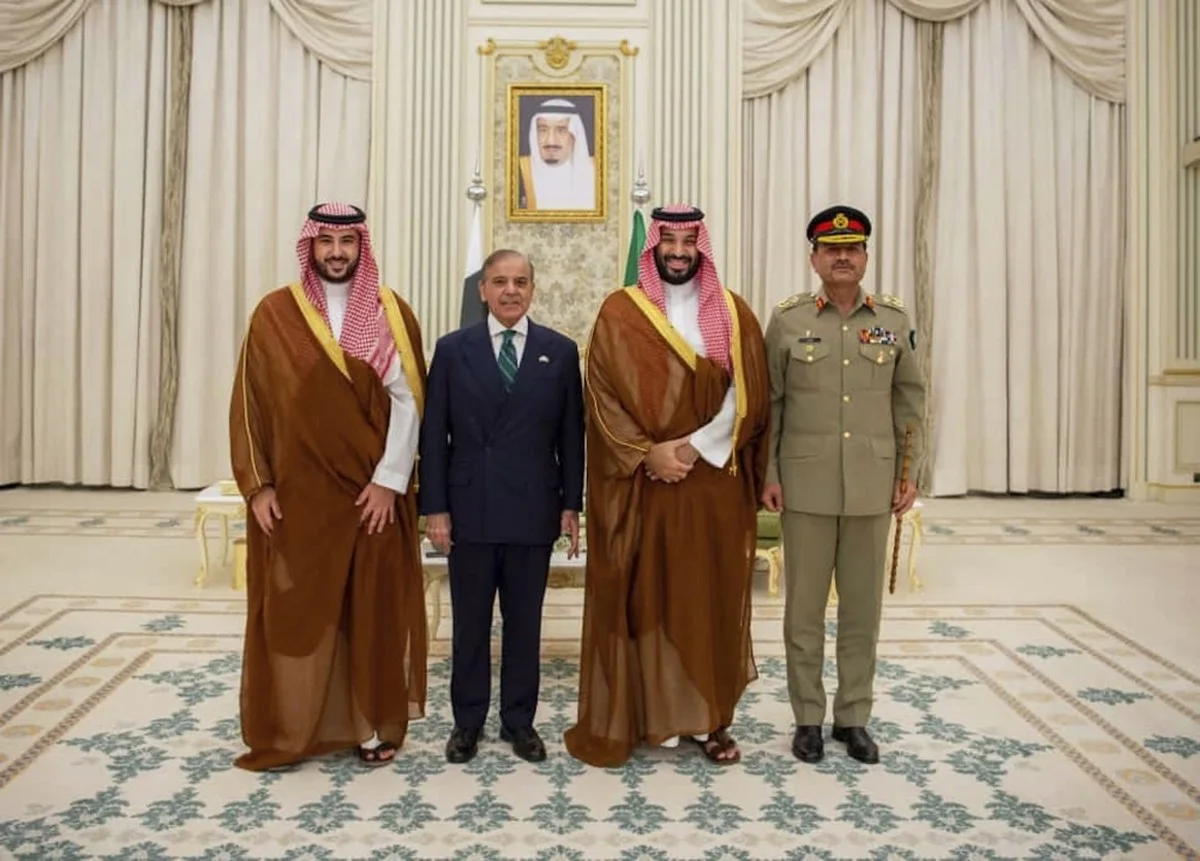20/09/2025
20/09/2025

DUBAI, United Arab Emirates, Sept 20, (AP): Pakistan’s defense minister says his nation’s nuclear program "will be made available” to Saudi Arabia if needed under the countries’ new defense pact, marking the first specific acknowledgment that Islamabad had put the kingdom under its nuclear umbrella. Defense Minister Khawaja Mohammad Asif’s comments underline the importance of the pact struck this week between Pakistan and Saudi Arabia, which have had military ties for decades.
The move is seen by analysts as a signal to Israel, long believed to be the Middle East’s only nuclear-armed nation. It comes after Israel’s attack targeting Hamas leaders in Qatar last week killed six people and sparked new concerns among Gulf Arab nations about their safety as the Israel-Hamas war devastated the Gaza Strip and set the region on edge.
Speaking to Geo TV in an interview late Thursday night, Asif made the comments while answering a question on whether "the deterrence that Pakistan gets from nuclear weapons” will be made available to Saudi Arabia. "Let me make one point clear about Pakistan’s nuclear capability: that capability was established long ago when we conducted tests.
Since then, we have forces trained for the battlefield," Asif said. "What we have, and the capabilities we possess, will be made available to (Saudi Arabia) according to this agreement,” he added. The two countries signed a defense deal Wednesday declaring that an attack on one nation would be an attack on both. The International Atomic Energy Agency, with which both nations have monitoring agreements, did not immediately respond to a request for comment over the Pakistani defense minister's remarks.
Asif criticized Israel in the interview for not fully disclosing its suspected nuclear weapons program to the IAEA. Israel has not commented on the two nations' defense pact. Pakistan long has criticized Israel's treatment of the Palestinians, but has not been directly involved in any war against it. And while neither nation has diplomatic ties to Israel, American officials had sought to mediate a diplomatic recognition deal involving Saudi Arabia before Hamas' Oct. 7, 2023, attack on Israel that sparked the war.
"We have not named any country whose attack would automatically trigger a retaliatory response. Neither has Saudi Arabia named any country, nor have we," Asif said in the interview. "This is an umbrella arrangement offered to one another by both sides: if there is aggression against either party - from any side - it will be jointly defended, and the aggression will be met with a response.”
The deal came a week after the attack in Doha as Gulf Arab countries weigh how to defend themselves. Israeli attacks since Oct. 7, 2023, have stretched across Iran, Lebanon, the Palestinian territories, Qatar, Syria and Yemen. Asked if others could join the pact, the minister added: "I can say the door is not closed to others.” That idea was repeated by Pakistan’s Deputy Prime Minister Ishaq Dar.


